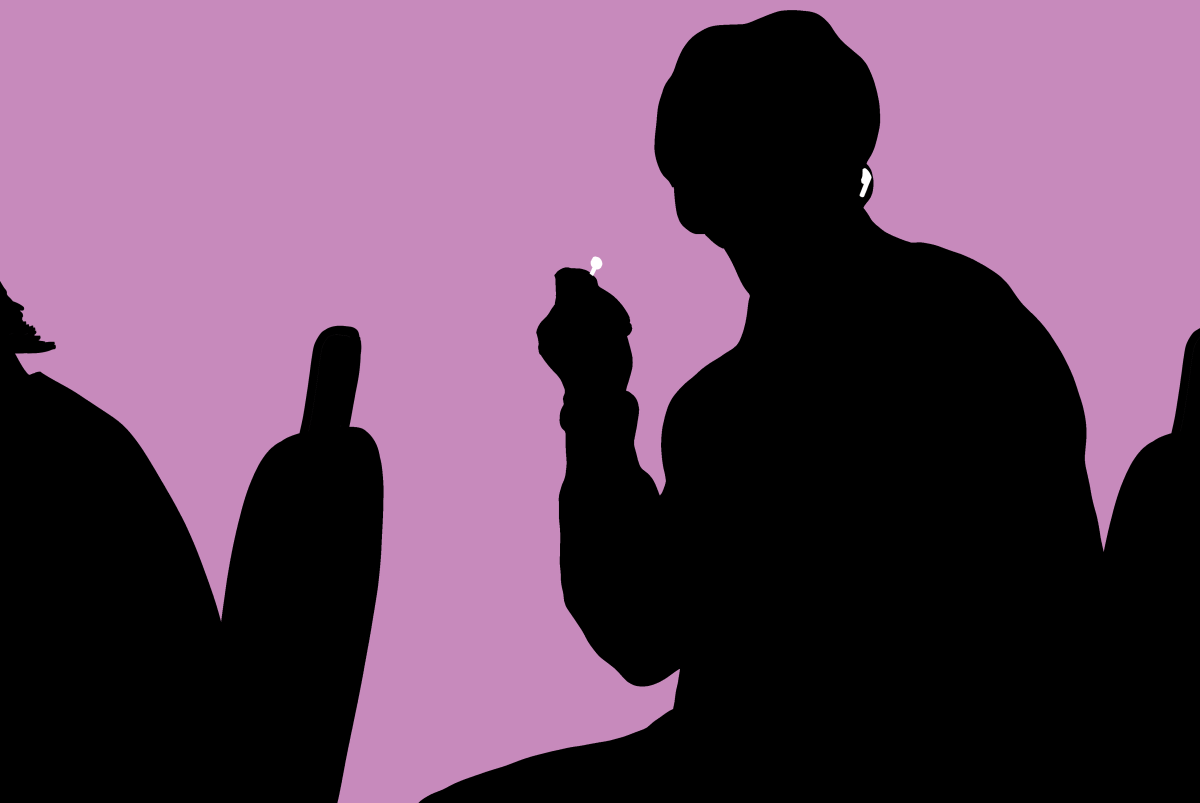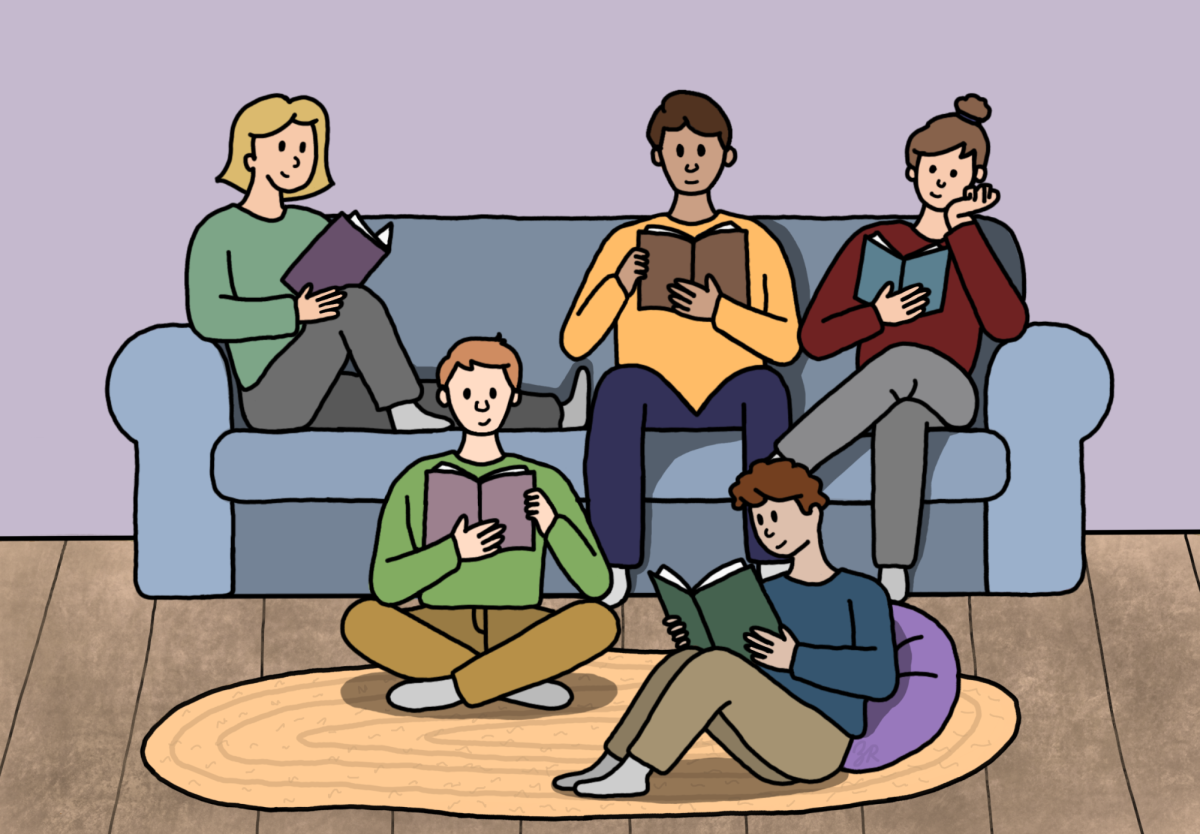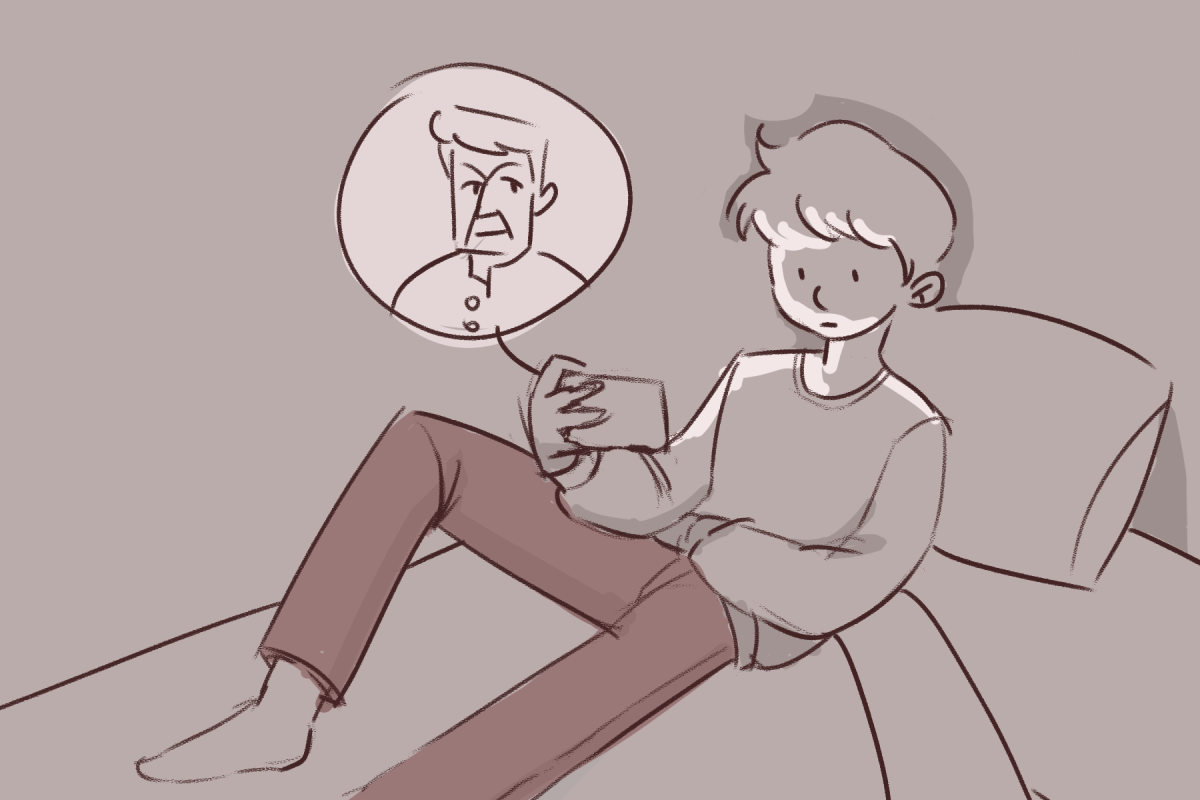While commuting on the bus to campus one morning, I made the uncharacteristic decision to not wear my Airpods. Despite falling behind on my favorite podcast, the choice may seem inconsequential, but, without the sounds of my Airpods playing in my ears, I noticed something I wasn’t expecting — silence.
A bus full of people, yet there wasn’t a single conversation between passengers — everyone staring at their phones, only looking up to see if their stop was near. When I got to school and stood in line to grab lunch, it was the same. The vast majority of individuals avoided conversation as if there was some unspoken rule against it.
How can this be? After all, the social sciences agree on one thing: we are social creatures. Study after study show that social interactions and relationships play an integral part in sustaining mental and physical health. And yet, we act as if the opposite is true. So, if we know social connections make us happier and healthier, why don’t we pursue them more often?
A recent study by psychologist Nicholas Epley and four other researchers suggests one of the primary reasons people avoid social interactions is because we underestimate how much we will enjoy them. According to Epley, many of us are suffering from “undersociality,” a condition where we perceive every potential social interaction to be stressful and awkward instead of fun and rewarding.
Epley refers to an experiment he conducted in 2014, which contrasted people’s expectations before a social situation with how they felt after. Commuters on trains were randomly told whether to seclude themselves or mingle with the other passengers. They were then asked to record how positive they expected to feel after their journey. Unsurprisingly, the commuters expected to dislike talking with strangers thinking it would be uncomfortable and forced. However, the results were exactly the opposite. People who engaged in a conversation reported enjoying their trip considerably more than those who did not.
As someone who’s always been incredibly introverted, I understand why many people would rather listen to music or watch YouTube instead of engaging with a stranger. Trying to strike up a conversation can be nerve-wracking, and there is always the fear the other person will find you annoying. So instead, we stay inside our little bubble. It’s easier that way.
But that protective bubble does more harm than good to our mental health. For more than a decade, rates of loneliness and depression have been increasing among adolescents. Further compounding the problem, the COVID-19 pandemic and subsequent public health measures, such as lockdowns and school closures, wreaked havoc on young people’s mental health. One American Medical Association meta-analysis of 29 studies found depression and anxiety in youth doubled compared to pre-pandemic levels.
Of course, professional therapy and other basic quality-of-life improvements, such as having a consistent sleep schedule and healthy eating, can help mitigate these mental health ills. But there is no better remedy than genuine human connections. No matter the age, race, creed or nationality, people naturally desire to form bonds with others. When we begin to shy away from meeting new people, we inevitably invite a sense of loneliness to creep into our lives.
In light of this knowledge, I have spent the last month going out of my comfort zone to talk to new people, and I’ve got to say it’s transformed my life. The bus is no longer an awkward intermediary phase between classes. It’s a chance to enjoy the presence of being around students who are probably facing similar challenges that I do. Social interactions remind us we aren’t alone in this fast-paced world — we’re all Aggies, after all.
It is increasingly my opinion that the fate of our society will be determined by how we treat others in our daily life: saying hi to someone new, complimenting a stranger or comforting someone in pain. These little actions benefit you and your community more than the loaded promises of politicians. In reality, the habits of the heart and how we treat others make the difference.
The next time you’re around people, do yourself a favor and remove the headphones. You’ll be surprised at how much better you’ll feel just by being in the moment. Don’t let your social insecurities dictate how you live your life. The more you fill your life with social interactions, the less anxious you’ll be and the more fun you’ll have.
Ryan Lindner is a political science sophomore and opinion writer for The Battalion.
Opinion: Put the headphones away
September 29, 2022
1
Donate to The Battalion
$2065
$5000
Contributed
Our Goal
Your donation will support the student journalists of Texas A&M University - College Station. Your contribution will allow us to purchase equipment and cover our annual website hosting costs, in addition to paying freelance staffers for their work, travel costs for coverage and more!
More to Discover
















